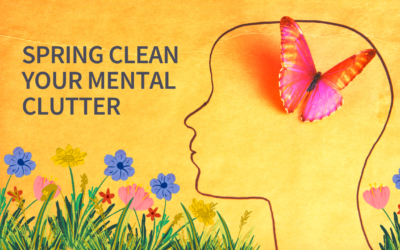
“Betsy” knew her extra body weight put stress on her body. Her plan was to lose weight when she retired. Also, her home would get organized, she’d have time for creative projects, the family photos would be put into albums, and everything would be in her control.
After retirement, her days would be determined by what she wanted.
Retirement came, and none of her goals were reached. She filled her free time with doing things for others. Aunt June needed someone to take her to the doctor. Her son wondered if she would babysit. Pastor asked if she would deliver meals to a few elderly church members.
Betsy began to have more physical issues. Her doctor told her she required knee replacement surgery. She lined up people to help her during recovery. They helped a few times. Then, they began not answering her phone calls, or they were “too busy that day.”
Instead of her son taking her to physical therapy, Betsy took an Uber. Rather than a friend bringing her a hot meal, Betsy relied on a food delivery service.
Once she began to drive again, others started asking her for help.
Seeing the Bitter Truth
At this point, Betsy attended another one of my presentations. Each time Betsy came, she noticed more of the unconscious patterns which had been running her life.
This time, she felt angry—really, really angry.
“I can’t believe that I’ve spent my whole life doing for others and they could barely help me when I needed it!” She fumed. “And now they have the gall to ask me to help them again, when I can barely drive myself to the doctor!”
Betsy’s eyes had opened to a very hard truth. She had taken on the role of giver and the exchange was not equal.
Not only was it unequal, but the people she served seemed to be incapable of giving to her. They took, then disappeared, only returning when they needed something else.
“How am I supposed to take care of others when I can’t even take care of myself?” Betsy asked bitterly. “They want me to keep giving, and I can’t.”
She was quiet for a moment, then continued, “I don’t want to help them. And they won’t let me out of it.”
Betsy assumed that if she gave and gave, that she would have people who were willing to give to her when she needed it.
Discovering that she was surrounded by takers felt like she had been betrayed by them and by the rules she had followed throughout her life.
Two Assumptions of the Giving Contract
Women and girls are taught to be givers. We are taught to accommodate others’ needs. We are taught to rescue everyone but ourselves. Don’t feel like giving? Too bad, it’s not about what you want.
The giving contract is presented as a trade-off. First them, then you. Except the “then you” part doesn’t happen.
- Assumption one of the giving contract is to give to others before yourself.
- Assumption two of the giving contract is that taking is bad.
To avoid being a “taker” you should never receive. If you receive a compliment (without brushing it off or minimizing it), then you are not being humble. To receive help means you are not strong enough to do it yourself. Receiving money is only okay if you have worked hard enough for it.
You are allowed to feel good about helping someone else, but you are not allowed to feel good about receiving help, money, gifts, or even a compliment.
=>=>=>Feeling good while receiving indicates that something wrong is happening.<=<=<=
Can you see how messed up this is? It’s such a freaking setup.
It’s how you end up like Betsy, in your 60’s, surrounded by people who are not honoring an equal exchange of taking and giving, and not knowing how to break free from the pattern.
You Teach People How to Treat You
Betsy spent her life following the assumptions of the giving contract. She didn’t consciously realize how she taught people how to treat her by rejecting receiving:
- “No, I don’t need meals while my son is in the hospital.”
- “This old thing? I got it for only $3 in clearance.”
- “Joe gets a little out of control when he drinks, but I’ll be fine.”
- “You can have the window seat.”
- “You decide where we eat.”
A lifetime of giving and not receiving teaches people that you are not open to equal relationships. It also tells your inner self that you do not deserve to be given what you desire.
Wake Up to the Giving Contract’s Assumptions
What’s coming up for you as I talk about this?
If Betsy’s story is triggering you, it means your awareness is awakening.
Only through awareness can we examine the assumptions.
Once we examine assumptions, we can decide whether or not to keep playing by those rules.
It doesn’t matter what your age is when you wake up to the giving contact’s assumptions. You are allowed to renegotiate who you give to and how, whether you receive and how.
It’s never too late.




